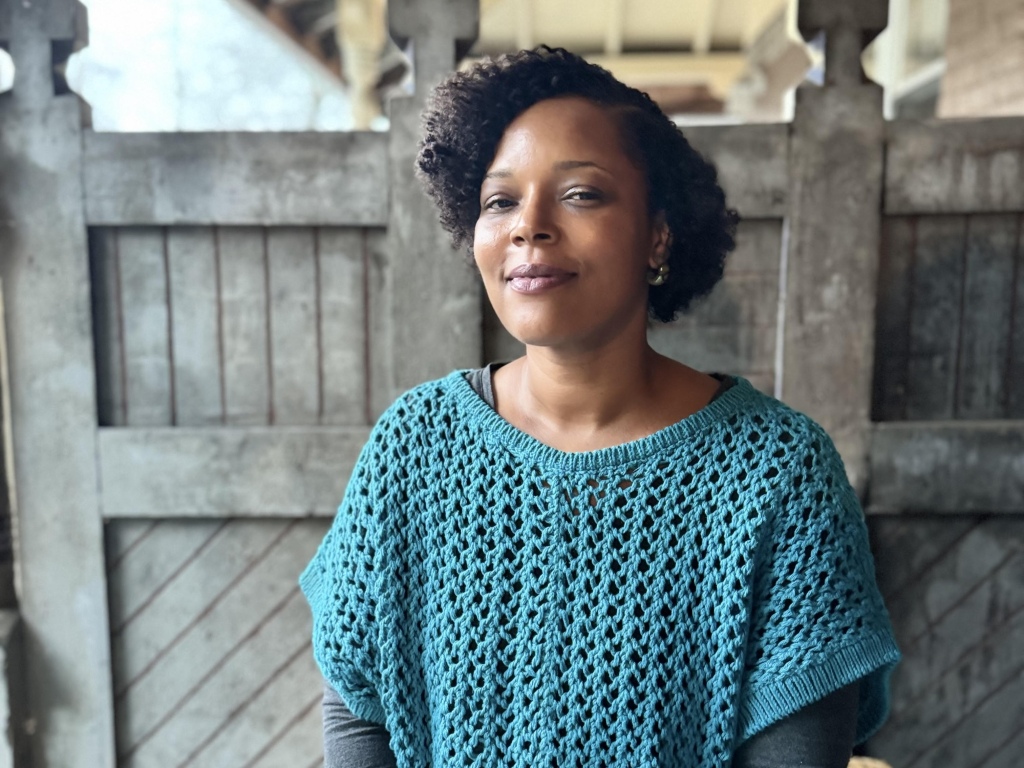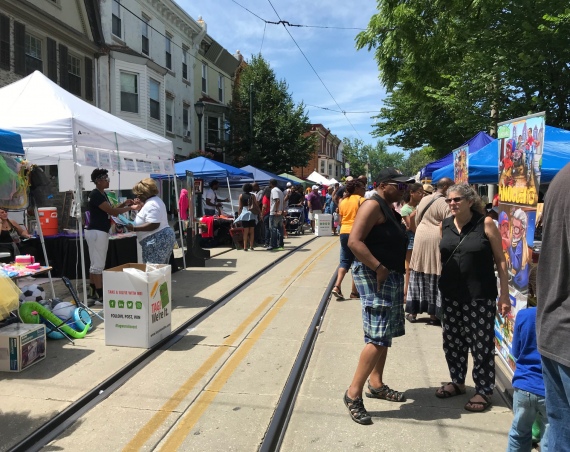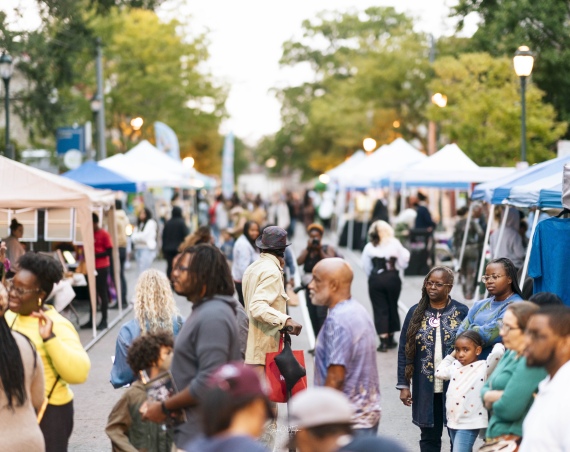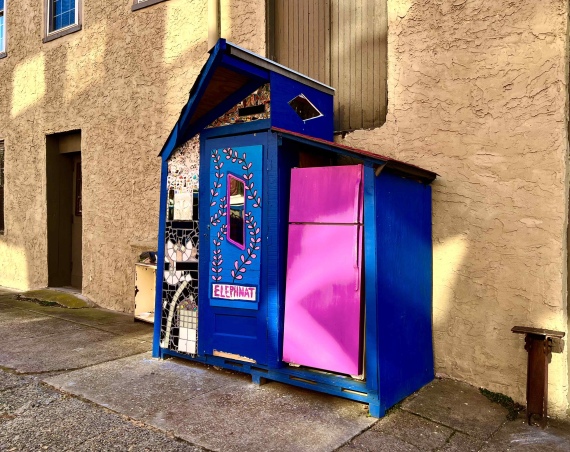
Next month, a show produced by award-winning Germantown-based poet Yolanda Wisher and choreographer Raja Feather-Kelly will invite Philadelphians to an immersive house party that explores the history of Black social dance.
The Re-Emancipation of Social Dance is an exploration of vernacular Black dance and culture from the 20th century to the present, exploring the many means by which people have created meaning and expression through movement.
In the performance, five Philadelphia-based artists with a diverse range of backgrounds will interpret what social dance means to them through a combination of dancing and storytelling — at times inviting the audience to join in. They span generations and genres, with expertise ranging from tap dance to hip hop. It’s set in a living room that encompasses five rooms within it. What exactly does that look like?
“I’m going to leave that for a little mystery,” Wisher said. “I want to reserve some of that surprise.”
The nonprofit Intercultural Journeys is producing the intimate 85- 100-person performance with support from the Pew Center for Arts and Heritage. It will debut at the Neighborhood House in Old City, Philadelphia, on Juneteenth weekend.
Social dance is “the untrained, unschooled dance that can certainly be taught and passed on,” Wisher told the Germantown Info Hub. “It’s a certain kind of community lineage of dance that is often hidden in plain sight and not really thought about as art … it’s a very rich cultural artform, a vernacular artform.”
Wisher was inspired to pursue the project after reading the book From Hucklebuck to HipHop: Social Dance in the African-American Community in Philadelphia by scholar John W. Roberts. The book weaved together oral histories of dance in Philadelphia.
In his book, Roberts “talks about it as any form of dance that folks were doing in their homes and clubs, community centers, as a form of recreation and entertainment,” Wisher said. Throughout her own life, social dance has been “a place of family and refuge,” she added.
“Sometimes in spaces where you don’t always feel welcome,” Wisher said, “this ability that we as Black folks have to be able to gather and to work our stress, our oppressions, our anxieties out through dance — this collective expression of dance and joy is something that I’ve been privileged to experience.”
Wisher was born in Germantown, grew up in North Wales, and has lived in Germantown for the past 20 years. As a child, she remembers listening to the vinyl records her mother had collected since she was a teenager and learning how to dance the bop. At school in the 90s, students would frequently dance to hip-hop at talent shows and basement parties.
In the 21st century, Wisher said, a lot of artistic expression is created through social media platforms such as TikTok, which act almost like the living rooms of the past. Her goal in creating the Re-Emancipation of Social Dance is, in a sense, an opportunity to extend the conversation around this practice to a new generation and wider audience.
The name itself acknowledges the freeing, emancipatory nature of social dance as “outside the bounds of some type of what can be controlled, what can be labeled,” Wisher said. “But there is a sense that it’s been hidden, it can go unacknowledged, it can not be seen for its full breadth, and I think in that sense it’s a re-emancipation, breathing of life into it, and recognizing that that’s happening.”
At the same time, “If you ask any of these dancers or Raja, you’re probably going to get a different answer, and I also really love that about the title too,” she added.
Intercultural Journeys Executive Director Carly Rapaport-Stein said she’s extremely excited to bring this production to life, describing Wisher as “one of the most extraordinarily talented wordsmiths that I’ve ever met.”
Rapaport-Stein said that the show is the most ambitious undertaking in the organization’s more than 20 years of history and fits perfectly with its history of producing work with artists that draw from cultural and artistic traditions.
It’s at “that really sweet intersection of history and a forward-looking work,” she said. “It is both steeped in the history of social dance but also is very imaginative, and really imagines what it could be into the future.”
Wisher said that although she didn’t grow up in Germantown, she has been inspired by the work of other artists and poets, such as Sonia Sanchez, Trapeta Mayson, and Ursula Rucker.
Wisher described the show’s choreographer, Raja Feather-Kelly, as “one of the most exciting, visionary storytellers of our moment, of our time,” who “thinks a lot about how culture is being made in the moment.”
That, in part, is what she aims to leave audiences with: a performance that not only recounts a story but generates a new one.
“Our house party is a form of culture-making,” Wisher explained. “Culture is being made right in front of us; we see culture on our street corners, but when do we get a chance to sit and meditate on that and think about all the things that hold that up and make that possible?” Now, she’s inviting us to join her in doing so.



